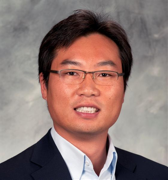
Abstract
All the technologies that we hope to turn our future greener and better use material resources including some of the most exotic ones. Low-carbon energy technologies (LCETs) including Photovoltaics (PVs), wind turbines, hybrid and battery electric vehicles, fuel cells, and Light Emitting Diodes (LEDs) help reduce our reliance on fossil energy, while they consume various material resources including Tellurium, Indium, Gallium, Neodymium, Dysprosium, Samarium, and Lithium among others. Depending on the LCET in question, availability of these materials at affordable price is critical to large-scale production of LCETs. Currently, many of these material resources are supplied by only few nations, some of which are not our best allies. China, for instance shares over 95% of global supply of Rare Earth Elements (REEs) that are essential to many of the LCETs. Recent de facto embargo of Chinese REEs to Japan in the midst of territorial dispute between Japan and China over Senkaku (Japanese) or Diaoyu (Chinese) islands highlights the possibility of abrupt interruption in supply of material resources essential for LCETs. In this presentation, major data and statistics for supply and demand of these material resources are reviewed, and some of the unique characteristics of these material resources such as price elasticity on demand, recyclability and geopolitical forces around them are discussed. It shows that mid-term price risks and supply-security—as oppose to absolute shortage of these material resources—are the major concerns in the rapid deployment of LCETs. The analysis is expected to assist making informed material choices and understanding full risks and opportunities associated with the development of LCETs.
Biography
Sangwon Suh is an assistant professor at Bren School of Environmental Science and Management. His research concerns the interfaces between technology, natural resources and the environment with strong analytical and modeling background based on whole life-cycle thinking. He authored or co-authored over 40 peer-reviewed journal articles and 3 books in the areas of Life Cycle Assessment (LCA) and Industrial Ecology. He is appointed as a member of the International Resource Panel by the United Nations Environmental Programme (UNEP). He serves the Journal of Industrial Ecology and the International Journal of Life Cycle Assessment as an associate editor. He was awarded the McKnight Land-Grant Professorship at University of Minnesota for 2009-2010, which is considered one of the most prestigious recognitions by the Board of Regents. Sangwon Suh was awarded the Robert A. Laudise Medal by the International Society of Industrial Ecology in June, 2009 “in recognition of his outstanding contributions to the field of Industrial Ecology”. He is the recipient of various fellowships and prizes including: SETAC-Europe Best Paper Award (2003); AT&T Industrial Ecology Fellowship (2002 and 2003); CML Best Scientific Publication Award (2002); POSCO Best Scientific Article Award (1998).